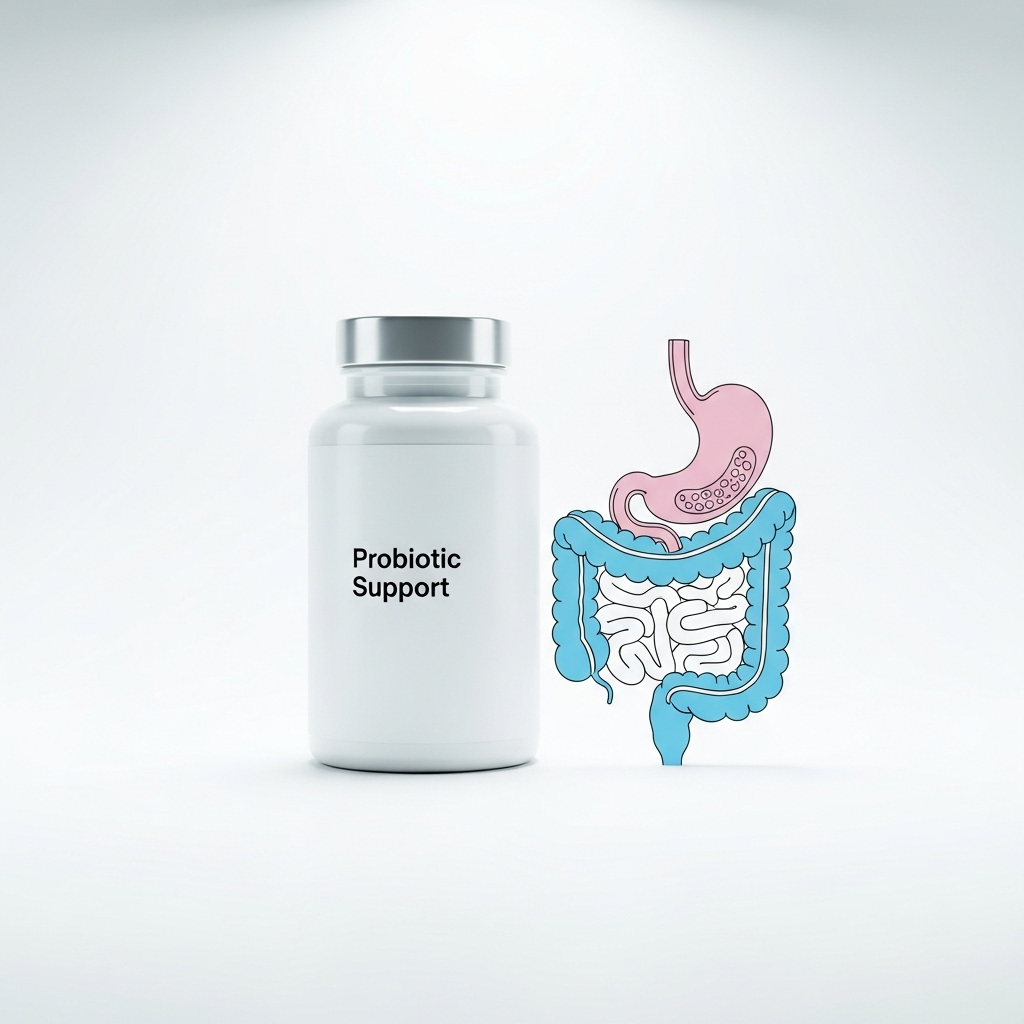Nom Nom Probiotic Support: Targeted GI Review

Probiotics are increasingly popular tools in managing digestive health for dogs. Nom Nom — a company known for fresh, portioned pet meals — also offers a probiotic supplement marketed to support gastrointestinal (GI) balance. This review explains what to look for, how the product is typically used, potential benefits and risks, and tips for choosing and introducing a probiotic to your dog. The goal is to help pet owners decide whether Nom Nom Probiotic Support might fit into their pet’s care plan.
What is Nom Nom Probiotic Support?
Nom Nom Probiotic Support is a dietary supplement marketed to help maintain healthy digestion and microbiome balance in dogs. Like most commercial canine probiotics, it’s intended to be mixed with a dog’s food and used either daily for maintenance or for short-term support during GI upset (as advised by a veterinarian).
Because formulations can change and labels vary by region, always check the current product packaging for the most accurate information about strains, colony-forming units (CFU), and additional ingredients such as prebiotics or fiber.
Ingredients and formulation
Probiotic products differ mainly by:
- Which bacterial strains are included (Lactobacillus, Bifidobacterium, Enterococcus, etc.)
- CFU count per dose (the viable bacteria number)
- Whether prebiotics or other digestive ingredients are added
- Format and stability (powder, paste, refrigerated vs shelf-stable)
For Nom Nom Probiotic Support, look at the label to confirm the exact strains and CFU listed and whether the product requires refrigeration. Transparent labeling and strain-level information are positive signs because specific strains and therapeutic doses are what drive results.
Label checklist
- Are strain names listed (not just “proprietary blend”)?
- Is the CFU count listed per serving and specified as “live at expiration” or “at time of manufacture”?
- Does it contain fillers, artificial flavors, or unnecessary additives?
- Does the packaging include storage instructions (refrigerate vs shelf-stable)?
Potential benefits: What to expect
When used appropriately, probiotics can offer several supportive benefits for many dogs:
- Help stabilize stool consistency and reduce mild, transient diarrhea
- Support digestion and nutrient absorption
- Promote a healthy balance of gut bacteria after diet changes or short antibiotic courses
- May support overall immune health indirectly through gut-immune interactions
Expect modest, supportive effects rather than rapid cures. Probiotics are best thought of as part of a broader approach to GI health (diet, hydration, vet care), not as a standalone treatment for serious conditions.
How to use and dosing
Follow the product label and your veterinarian’s recommendations. General tips:
- Start with the recommended dose on the label. Many canine probiotics are given once daily mixed into food.
- Introduce gradually — especially in dogs with sensitive stomachs — by offering a half dose for a few days, then increase to the full dose.
- Consistency matters. For maintenance, give daily; for short-term support, follow your vet’s guidance on duration.
- If your dog is on antibiotics, discuss timing with your vet — sometimes probiotics are given several hours apart from antibiotics to maximize survival of live strains.
If your dog is a puppy, pregnant, nursing, or immunocompromised, consult your veterinarian before starting any probiotic supplement.
Safety, side effects and interactions
Probiotics are generally safe for most healthy dogs, but possible mild side effects include:
- Temporary gas or bloating during introduction
- Minor changes in stool consistency as the microbiome adjusts
Less commonly, animals with severely weakened immune systems or major underlying illness may be at risk from live microbial supplements. Always check with your veterinarian before giving probiotics to dogs with chronic health conditions, recent surgeries, or immune disorders.
Interactions: probiotics are usually safe alongside most medications, but antibiotics can reduce probiotic effectiveness if taken simultaneously. Your vet can recommend timing to reduce interaction.
How Nom Nom Probiotic Support compares to other options
When comparing any branded probiotic, consider:
- Transparency about strains and CFU
- Format that suits your dog (powder vs paste vs chewable)
- Storage requirements and shelf life
- Price per dose
Nom Nom’s product may be a convenient choice if you already use their food service, but equivalent results can also be achieved with veterinary-formulated probiotics or well-reviewed veterinary brands. The best choice depends on your dog’s needs, tolerance, and budget.
Pros and Cons
| Pros | Cons |
|---|---|
| Convenient food-topper format; easy to mix into meals | May be pricier per dose than some generic or veterinary products |
| Designed to complement a pet-food regimen | Effectiveness depends on strain clarity and CFU — check the label |
| Generally well tolerated by many dogs | Not a replacement for veterinary diagnosis or treatment of serious GI issues |
Who should consider Nom Nom Probiotic Support?
Consider this product if your dog:
- Has occasional, mild digestive upsets related to diet change or travel
- Would benefit from a daily maintenance probiotic added to food
- You want a product that’s simple to use with a fresh-food feeding routine
Do not rely on probiotics alone for persistent diarrhea, vomiting, weight loss, blood in stool, or other serious signs — these require veterinary evaluation.
Frequently Asked Questions
Q: Can I give Nom Nom Probiotic Support while my dog is on antibiotics?
A: Often yes, but timing matters. Antibiotics can decrease probiotic effectiveness if taken at the same moment. Ask your vet whether to give the probiotic a few hours before or after antibiotics.
Q: How long does it take to see results?
A: Some dogs may show improvement in stool consistency within a few days; others may take 2–4 weeks. If there’s no improvement or signs worsen, contact your veterinarian.
Q: Is this safe for puppies and senior dogs?
A: Many probiotics are safe for puppies and seniors, but check the product label and consult your vet, especially for very young puppies, pregnant or nursing dogs, or animals with immune issues.
Q: Do probiotics need refrigeration?
A: It depends on the formulation. Some are shelf-stable; others require refrigeration to maintain viability. Follow the product’s storage instructions.
Q: Can I use the probiotic daily long-term?
A: Many owners use probiotics long-term for maintenance, but long-term use should be discussed with your veterinarian to ensure it fits your dog’s overall health plan.
Key Takeaways
- Nom Nom Probiotic Support is a convenient supplement intended to help maintain healthy digestion when used as directed.
- Check the product label for specific strains, CFU, and storage instructions — transparency matters.
- Probiotics can support mild, short-term GI issues and general gut health but are not a substitute for veterinary care for serious problems.
- Introduce gradually, monitor your dog, and consult your vet for puppies, seniors, immunocompromised pets, or dogs on medications.
- If symptoms persist or worsen, seek veterinary evaluation promptly.
Disclaimer: This article provides general information and is not a substitute for professional veterinary advice. Product formulations change; always read the product label and consult your veterinarian before starting any new supplement for your pet. If your dog experiences severe GI signs, allergic reactions, or other concerning symptoms, contact your veterinarian right away.

Leave a Reply